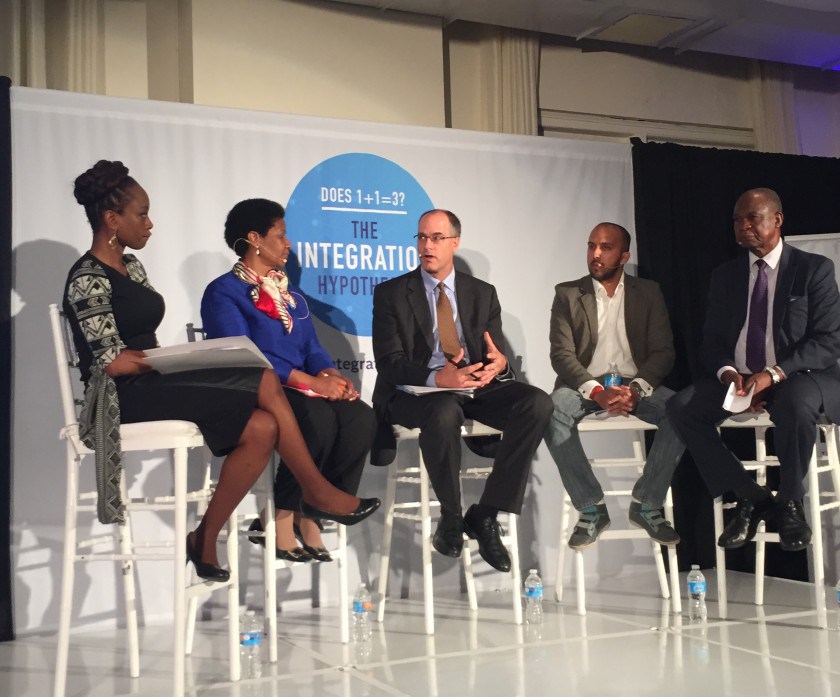
A version of this post originally appeared on Girls’ Globe. Reposted with permission.
Opening up the panel, Greg Beck, FHI 360‘s Director of Integrated Development, told the story of one particular attempt to aid in relief efforts. After great effort, and amassing donations and supplies, they opened boxes to find stacks of things like inflatable toilets and acne cream.
Asked Beck, “How is this going to help anybody rebuild their life?”
Beck’s point was an extreme example of a nonetheless integral point: development and aid are not straightforward, not simple. They don’t consist of simply hurling donations and good intentions at a problem and hoping something sticks.
The term “integrated development” means just that — that development is complex and requires coordinated, planned effort across sectors.
It operates around the idea that development does not exist problem by problem, sector by sector. You can’t improve global health without improving education without improving women’s rights. Naturally, there are some specific efforts that require a concentrated approach, but overall, a holistic view is more effective, and organizations and governments need to address what people really lack in the complex, multilayered environments in which they live — not just what we think they need.
The list of speakers was packed with high-level representatives of the NGO [nongovernmental organization] world: Katja Iversen, CEO of Women Deliver; Greg Beck, FHI 360’s Director of Integrated Development; Eliya Zulu, Executive Director of the African Institute for Development Policy; Phumzile Mlambo-Ngcuka, Executive Director of UN Women; Tony Pipa, U.S. Special Coordinator for the UN post-2015 development agenda; and Wilberforce Kisamba-Mugerwa, Chairman of the Uganda National Planning Authority.
However, the highlight of the evening might have been Dakshitha Wickremarathne, a social worker and a youth representative on the Lancet Commission on Adolescent Health and Wellbeing.
By far the youngest on the panel, Wickremarathne was walking proof of the refrain of this conference: that young people need to be engaged in order to move forward.
He told powerful stories of the effects young people had in his native Sri Lanka, including one regarding a simple observation made by a young person that, in sign language, the same sign was used for “rape,” “sex” and “sexuality.” The cultural impact of this small detail is immeasurable, and he resolved to correct it, and worked to establish a better glossary for sign language.
Zulu pointed to the danger of ignoring the growing power of young people. In numbers they’re growing and have untapped potential, for good or for bad. As Zulu explains, even the smartest youth can be proponents of world extremism if they’re disillusioned or unemployed.
“If you treat young people as a problem, not an opportunity, you’re missing the point,” affirmed Iversen.
If you treat young people as a problem, not an opportunity, you’re missing the point. #IntegratedDev Click To TweetWith Iversen and Mlambo-Ngcuka present, the theme of the importance of women and girls — especially young women and girls — was woven throughout the conversation.
The impact of women’s rights on global development is immense, and women’s rights also have to expand to include adolescent and girl’s health.
“We’re so focused on maternal health more than adolescent health, and by the time we’re addressing adolescent health, it’s a little late,” said Mlambo-Ngcuka.
The empowerment of young women and girls can have great ramifications for other areas of development. For example, said Pipa, “It’s been shown that getting girls and adolescent girls into school is correlated with lower HIV rates. That’s a small, but important victory in three battlefields: global health, education and women’s rights.”
“We’re not living in silos,” said Iversen. “It’s all integrated, and it has to be, and we have to look at this that way.”
